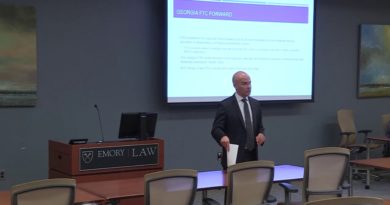Challenge of Electronic Evidence in Divorce
What are some challenges regarding electronic evidence in divorces? Contested divorces are when the two parties cannot come to an agreement regarding the terms of their divorce. If the divorce is contested, then the parties will have to go to trial in the Circuit Court. Then, the parties will have to present their arguments to the judge, and the judge will determine the outcome of each term. To prepare for trial, each party’s attorney will conduct discovery. Discovery allows the parties to obtain any relevant information and evidence that they can use to prepare for the divorce to go to trial. Discovery in a Morgan County divorce (or anywhere else in Alabama) can be done through interrogatories or depositions, which both gather information by asking questions, or it can be done by requesting documents, records, or other evidence to be turned over to the opposing party.
Electronic evidence can be essential to discovering information. This information may be found on computers, cellphones, flash drives, online cloud storage, etc. It can include evidence in the form of social media posts, emails, texts, voicemails, videos, documents, files, internet history, and more. When information is stored electronically, it allows data to be accessed that would not be available otherwise. For example, it may allow your Huntsville divorce attorney to see the time, date, or location that the information was accessed, created, or stored. This can be very beneficial in divorce proceedings, especially if a spouse is hiding assets because purchases and transfers can be tracked.
When discovery is performed electronically, the process is referred to as eDiscovery. eDiscovery may make it easier to collect information, but it may also pose certain risks. One of these risks is that it may be difficult to sort through and find all of the relevant information. eDiscovery by your divorce lawyer in Birmingham tends to result in substantial amounts of information obtained from multiple electronic sources, which could lead to crucial evidence and its relevance being overlooked and missed completely. Another risk is accessibility. Information obtained in discovery should only be accessible to those who are legally authorized to view it. This poses a risk to privileged information because it could be accessed before it is officially deemed privileged, or it could be screened (sorted based on relevancy and admissibility) by someone who has an interest in the information rather than a neutral third party. eDiscovery could also be risky in regard to the information being deleted or modified.
Electronically stored information can be essential to a divorce proceeding. It can offer many benefits by making the discovery process easier and more organized. It may also help the discovery process be completed much quicker than regular, manual discovery by your Prattville divorce attorney. However, electronically stored information must be used with caution because it does pose some risks. In order to avoid risks, plans should be put in place regarding security and proper procedure. If electronic evidence in divorce is not protected or handled correctly, it could result in liability.
Attorney Steven A. Harris regularly blogs in the areas of family law, bankruptcy, and real estate closings on this website. He is always available in any of the firm’s offices or by phone anytime for a consultation. Mr. Harris tries to provide informative information to the public in easily digestible formats. Hopefully you enjoyed this article and feel free to supply any feedback. We appreciate our readers and love to hear from you!
Sharing is caring:







